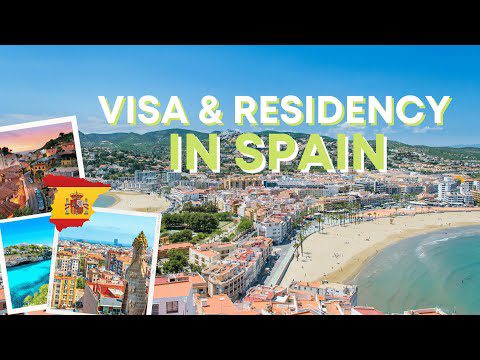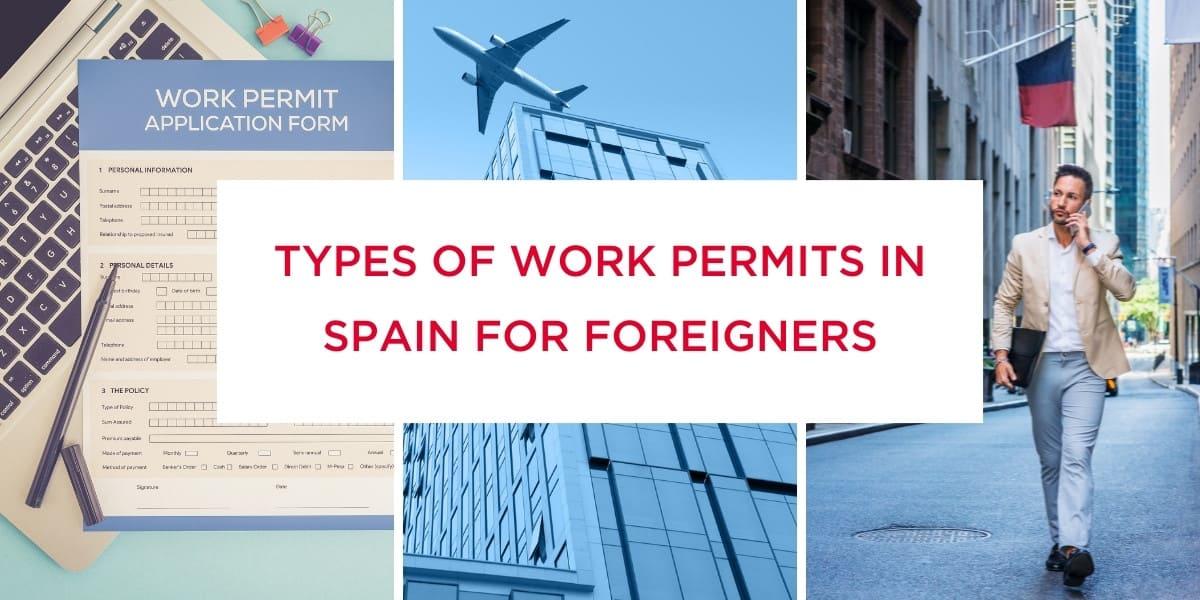Are Spanish tapas and sunshine calling your name? Find out if you need a visa or permit to visit, live, work, or study in Spain.
Spain has much to offer people who want to relocate to live, work, and study in the country. It boasts fascinating culture, great weather, and a laid-back lifestyle. However, the rules for visiting and immigrating to Spain can vary. Much also depends on your country of origin. Find out if you require a visa for Spain and how to get the right one for your situation. Topics covered below include:
- Immigration in Spain
- Who needs a Spain visa?
- Types of visas in Spain
- Spain visas for short-term stays
- Long-term visas in Spain
- Digital nomads and remote workers
- Spain non-lucrative residence visas
- Fast-track and golden visas
- Asylum seekers and refugees in Spain
- Permanent residence and citizenship
- Arriving in Spain
- Appeals and complaints
- Useful resources
Immigration in Spain
Spain is a member of the European Union (EU) and Schengen Area. As such, it is particularly easy for EU citizens to move to Spain. The Spanish Ministry of the Interior (Ministerio del Interior) and the Ministry of Foreign Affairs (Ministerio de Asuntos Exteriores) both deal with immigration matters. A little more than 15% of Spain’s 47.4 million residents are foreign-born. In 2020, the highest number of new Spanish residents come from Colombia.
People in Spain enjoy a quality of life that is on par with other OECD countries. However, Spain does have lower salaries and higher unemployment than many other EU countries. The country was hit hard by the COVID-19 pandemic, however, economists predict it will recover. GDP is projected to grow by 5.5% in 2023 and 3.8% in 2025.
Who Needs a Spain Visa?
Spain’s visa rules vary. As mentioned above, the country is a member of the EU and Schengen states. The ease with which you travel to, and through, Spain largely depends on the agreements Spain has with your country of origin.
EU/EEA Nationals
Citizens of the EU, the European Economic Area (EEA), and Switzerland don’t need a visa to visit, live, work or study in Spain. All you need is a valid personal identity card or passport issued by an EU/EEA country. However, if you plan to stay long-term you must register with the Spanish authorities and get a national identity number. You have to do this within three months of your arrival.
Non-EU/EEA Nationals
Nationals from other countries will need a visa to visit, live, and study in Spain. In most cases, a work permit is required too. This includes UK citizens who were not legal residents in Spain before 1 January 2021. Citizens of countries without an agreement with Schengen states will need a visa to stay short-term (less than 90 days) in Spain.
All non-EU/EEA travellers need to present the following documents to the border police when they arrive at a Spanish port of entry:
- A passport or travel document. This must be valid for at least three more months beyond your planned date of exit from the Schengen area. Also, it must have been issued within the last 10 years.
- A visa, if you are subject to the Spanish visa regime.
- Proof of accommodation. A document that shows where you will be staying during your time in Spain, such as a hotel booking or rental contract.
- A return or round-trip ticket. In the case of a short stay. Proof of onward travel, if you do not plan to return to your home country upon the end of your stay in Spain.
- Purpose of entry documents. These can include work contracts, travel itineraries, or university acceptance letters.
Types of Visas in Spain
- Short-term Spain visas – known as the Schengen or C-type visas (visado de corta duracion), allow stays of up to 90 days for tourism or business travel. Some nationalities also require an airport transit visa for Spain (visado de transito aeroportuario).
- Long-term national visas (visado Nacional) – are required for non-EU/EEA citizens who want to stay longer than 90 days in Spain. For example, the combined residence and work visa (visado de residencia y trabajo) or the student visa (visado de estudios).
- Residence-only visas – If you want to stay long-term in Spain without working or studying, you will require a residence visa (visado de residencia no lucrative). These are usually issued to people who want to live in Spain for family reunification or retirement.
Details of these visas along with qualifying conditions, costs, and application processes are explained below; current information is available from the Spanish Ministry of Foreign Affairs. Note that some rules for entering Spain may have changed temporarily due to the COVID-19 pandemic. It is therefore a good idea to check official travel updates before booking your trip.
Spain Visas For Short-term Stays
Many nationalities can enter Spain without a visa for periods of up to 90 days. These include the US, Canada, Australia, New Zealand, Argentina, Brazil, and Japan. However, you must still apply for a long-term residence visa to stay longer than three months. After the end of 2025, citizens of countries who can currently enter Spain without a visa will need to obtain an ETIAS Visa Waiver which will be similar to the US ESTA.
Like most EU countries, Spain is a Schengen area country. This means that if you have a short-stay visa issued by another Schengen state you can also visit Spain.
However, you will need to obtain a visa if one of the following statements applies to your situation:
- You are a national of a non-EU/EEA country that has neither a Spain visa agreement nor one with the Schengen states (and you do not have a Schengen visa).
- You are a national of a country that has reached a visa-free movement agreement with the Schengen states, but you were previously barred from entering Spain or any other Schengen country without a visa.
Spain has several types of short-stay visas. The visa you need depends on your reason for entering the country.
Airport Transit Visa
Would You Like To Apply For This Jobs/Sponsorship?
Enter Your Email Address HERE & You Will Receive a Notification About Your Application. If it shows "Subscribed" CLICK HERE to follow on Telegram for updatesAn airport transit visa (visado de transito aeroportuario) allows you into the international transit zone at an airport in Spain. Not everyone needs one, however, it is worth checking if you require a transit visa. If you are from one of the countries on that list, then you’ll need to apply. You can do this through the Spanish embassy or consulate in your home country.
Short-stay Schengen visa
A short-stay Schengen visa (visado de corta duration), or C-type visa, allows you to stay in Spain for up to 90 days in 180 days. The visa typically costs €80 for adults and €40 for children between the ages of six and 12. However, the fees can vary depending on other factors, such as the purpose of the visit and your nationality.
Schengen visa categories
- Tourist visa – for tourism holidays or sightseeing
- Visitor visa – for visiting friends or family members residing in Spain
- Business visa – for business-related activities
- Official visit visa – for official delegations coming to Spain on an official trip
- Medical visa – for people seeking medical treatment in Spain
- Study visa – for students wishing to attend a course for up to three months at a Spanish educational institution
- Spanish visa for cultural, sports, and film crews – for people wishing to attend an activity in Spain related to the above categories
Contact the Spanish embassy or consulate in your own country to apply.
Spain’s visa rules dictate that you must meet certain requirements to receive a short-stay Schengen visa. These include showing proof of valid travel insurance, a round-trip itinerary, and proof of sufficient financial means (€100 per day, with a minimum of €900 per person regardless of the intended duration of the stay). You cannot work or earn money while visiting Spain with a Schengen visa.
To renew your short-term visa, visit your local Foreigner’s Office (Oficina de Extranjeros) or police station as long as your stay is less than 90 days. Keep in mind that Spain’s visa rules do not allow you to change your visa status when in Spain on a short-stay permit. To change your status you must return to your home country and apply for a new visa there.
Long-Term Visas in Spain
For long-term stays in Spain, you need a national visa, unless you’re a citizen of the EU/EEA or Switzerland. Spain’s national visa (visado Nacional), also called a D-type visa, allows you to live in the country for longer than three months. Typically, these visas are valid for one to five years and are renewable, and are less restrictive. As such, you are free to work, study, or carry out research in Spain with this type of visa. Keep in mind that the visa approval process can take up to eight weeks or more. The fees for these visas can vary, depending on your nationality, but they typically cost at least €87.
Spain Work Visa
In Spain, you first have to get a work permit before you can apply for a work visa. Work permits (por cuenta ajena) are issued under the authority of the Ministry of Labor and Social Economy (Ministerio de Trabajo y Economía Social) in Spain. However, keep in mind that work permits are generally issued at the local level by Work and Immigration offices (Delegación Provincial del Ministerio de Trabajo e Inmigracion) in Spain’s autonomous regions. For example, Barcelona’s Work and Immigration office will issue your work permit if you get a job in the Catalan capital.
There are several types of work visas in Spain. However, you should be aware that you cannot generally apply for these visas on your own. Spain’s visa law dictates that your employer must apply on your behalf. This means you will need to have a contract and offer of employment.
Of course, there is an exception to this. If you intend to work as a freelancer, for example, you will need to apply for a self-employed (autónomo) work permit yourself.
A work visa in Spain is usually valid for one year and you can renew it for up to five years. After five years, you are eligible for permanent residency in Spain.
Spain Student Visa
If you are not an EU/EEA citizen you will need to apply for a student visa. Keep in mind that an educational institution must accept you first.
Only then can you apply for a student visa. The visa is valid for the duration of your study program. With this visa you are free to live, study, carry out research or take on an apprenticeship in Spain. You can also do paid work for up to 20 hours per week with a student visa in Spain.
Working Holiday Visas
Spain has working holiday visa agreements that apply to citizens of:
- Australia
- Canada
- Japan
- New Zealand
- South Korea
If you’re younger than 30 years old, you can only apply for a Spanish working holiday visa from a Spanish embassy or consulate in your home country. With this visa, you can live in Spain for a year. You can also work for three months per employer and visit other EU countries.
Digital Nomads and Remote Workers
As part of Spain’s efforts to attract talent and investment, the government passed a draft Start-Up Law in November 2021. This paves the way for the awarding of visas to digital nomads and remote workers.
Benefits include a special five-year visa and non-resident income tax status. This means your income tax rate will be 15%. This applies to:
- Managers and employees of startups
- Investors
- Digital nomads and remote workers (as well as those on temporary assignment in Spain)
- The families of all the above
Through the draft bill, the government aims to attract new talent and investment to its shores. Spain is also trying to lure back former residents. If you have not been resident in the country for at least five years then you get non-resident tax status on your return. As of February 2025, the draft law was still to be ratified by Parliament. You can find updates on the government’s web portal.
Spain Non-Lucrative Residence Visas
Of course, not everyone wanting to move to Spain intends to work there. For example, retirees and those wanting to reunite with family. In this case, you need to apply for a residence visa (visado de residencia). Of course, if you are a citizen of an EU/EEA country this does not apply to you.
Do keep in mind that you cannot work remotely on a non-lucrative visa in Spain. Although there have been anecdotes of people doing so, it is illegal and the authorities are enforcing the law in this regard. Spanish consulates are specifically pointing this out to applicants. In short, as a non-lucrative visa holder, you cannot conduct any type of professional (lucrative) activity – even if you work remotely. As mentioned above, if you intend to work remotely in Spain as a freelancer it is best to apply for a self-employed (autónomo) work permit. And keep an eye out for developments around the new digital nomad visa rules.
There’s more on the terms and conditions of these kinds of visas below.
Spain Spouse and Family Reunification Visas
Once you have been living legally in Spain for a year, and have official confirmation that your visa will be extended by a year, you can apply for family members to join you. This includes your spouse, common-law partner, children under 18, or parents over 65.
If you hold a long-term residence permit from another EU member state (or an EU Blue Card), you can apply at any time.
It’s good to note that students can apply to have family members join them. Spain grants visas for the same duration as the student’s residence permit. A benefit is that family members older than 18 can take on employment in Spain without a work permit.
If you want a Spanish spouse visa, you will need to apply for family reunification (reagrupación familiar). People not already living in Spain can apply via their local Spanish embassy. If you are already in Spain, visit the local Foreigner’s Office, taking all the required documents with you.
Retiring in Spain
If you want to retire in Spain as a non-EU/EEA citizen, you can apply for Spain’s non-lucrative residence visa (visado de residencia no lucrative). You must prove that you have the financial means to support yourself in Spain without working. As of 2025, this means that you can prove that you have at least €27,115 in your bank account plus €6,778 for each dependent.
The visa allows you to stay in Spain for one year after entering the country. You must spend a minimum of 183 days in the country to be able to renew. This also means that you will become a tax resident and taxable on your worldwide income (subject to double tax treaties). The visa can be renewed every two years until you get permanent residency, which is available after five years in the country.
Fast-Track and Golden Visas in Spain
Citizens of non-EU countries who are investors, entrepreneurs, highly qualified professionals, and researchers can apply for fast-track visas. These permits offer the automatic residence for the whole family and visa-free travel throughout the Schengen area. These allow you to live and work in Spain for two years and are renewable for the same duration, as long as you continue to meet the visa conditions. You can apply for permanent residence after five years.
Then there are the so-called golden visas that also grant residence for the whole family and travel through the Schengen area. There are various ways you can get a golden visa. For example, investors may need to spend €500,000 on property in Spain. Or, if you have the cash, you can buy €1 million of shares in a Spanish company or fund. Alternatively, you can deposit at least €1 million in a Spanish bank. Lastly, you can buy €2 million worth of Spanish government debt.
Asylum Seekers and Refugees in Spain
Spain received 88,669 asylum applications in 2023. This dropped to 58,540 in 2025. Spain has a relatively low acceptance rate of asylum applications, 6% in 2023 and 10% in 2025. Spanish authorities typically take up to two years to decide on an application. Most of the applicants came from Venezuela, Colombia, and Honduras 2025. The following year applications from Morocco overtook Honduras.
Anyone who wishes to apply for asylum in Spain, including minors under the age of 18, may do so at:
- Border checkpoints – whether it is a port, airport, or land border in Ceuta or Melilla. You must notify the National Police or Civil Guard that you want to seek asylum, refuge, or international protection in Spain.
- Immigration offices or police stations – those already in Spanish territory must go in person to one of these offices to make an appointment.
- Immigration Detention Facilities (CIE) – if you have already been detained and wish to apply for asylum, you must notify the facility’s management.
- Prisons – you may also request international protection if you are in jail by notifying prison management.
You should apply for asylum within the first month of your arrival in Spain. This European Council on Refugees and Exiles web portal offers more details on the official process and regulations.
Permanent Residence and Citizenship
After five uninterrupted years of temporary residence in Spain, you can apply for long-term or permanent residence. You are also entitled to permanent residence in Spain if you hold a Blue Card from another EU member state and lived elsewhere in the EU for the same period. A long-term residence permit allows you to stay in Spain indefinitely. Permanent residency affords you most of the same rights as Spanish citizens, with the notable exception of voting in elections.
If you want all of the rights of citizenship, you can apply for Spanish nationality after 10 years of residence. Of course, you can also acquire Spanish nationality through marriage, or if your parents are Spanish and you were born outside Spain.
Arriving in Spain
Within 30 days of arriving in Spain, all non-EU/EEA and Swiss citizens staying for longer than three months must apply for an identity card (Tarjeta de identidad de extranjero or TIE). You have to apply at the Foreigner’s Office (Oficina de Extranjeros) or a police station in your province. Documents you will need include:
- A valid passport
- Color passport photos
- Completed application form
- Proof of payment of the card fee
- Proof of social security registration
The TIE card will be valid for the duration of your Spain visa and residence permit.
Registering on El Padrón
You should also get a certificado de empadronamiento by registering on the population register called the padrón at your local town hall or municipal office. In some cities, you can also do this online or by phone.
Accessing Healthcare in Spain
After you are registered, you can apply for a healthcare card (Tarjeta sanitaria individual or TSI card) which will enable you to access Spain’s free public healthcare. Keep in mind that state healthcare does have exclusions, such as dental work. Many ex-pats look for private health insurance to cover these gaps.
To access state healthcare, you will also need to make sure you have your social security number, which will be issued by your employer. If you haven’t received one, you can sort this out through your local social security office, called the Tesoreria General de la Seguridad Social (TGSS).
Opening a Bank account in Spain
If you’re in Spain to live and work long-term you will likely want to open a bank account with a Spanish bank. To do this, you will typically need to provide:
- Proof of identity (e.g., passport)
- NIE (número de identificación de extranjero) – your foreigner’s identification number/tax number
- Proof of address
- Proof of employment status (e.g., student card, employment contract, unemployment documentation)
Documents that aren’t in Spanish may need to be officially translated. If they’re from abroad, they may need to be authenticated using an Apostille seal in the country that issued them. You might want to consult a notary to assist you.
Legalization and Translation of Documents
As mentioned above, foreign documents must be translated into Spanish and be legalized (certified as authentic) or have an Apostille seal.
Translations must be done by translators certified by the Spanish Ministry of Foreign Affairs and Cooperation (Ministerio de Asuntos Exteriores de España). Contact the Spanish embassy or consulate in your home country for more information.
Appeals and Complaints
There are several online Spanish visa tracking systems for specific nationalities. These allow you to monitor the progress of your application. Here are some examples:
- Indian citizens
- Citizens of the UAE
- Citizens of the Dominican Republic
- Russian citizens
- UK citizens
- South African citizens
If your application for a visa is rejected, you can appeal the decision. As such, you have two options. Firstly, you can choose an administrative appeal. This means appealing to the diplomatic mission that rejected your visa application in the first place. You have one month to complete the appeal form and submit it for review. This will allow you to explain why you think the visa should be granted. However, if you don’t receive a written reply within one month from the date of your appeal, you should consider the decision final.
Secondly, you have the option to lodge a judicial appeal. This must be submitted to the High Court of Justice in Madrid (Tribunal Superior de Justicia de Madrid) within two months of your visa being denied. You will, of course, need a lawyer if you choose this route.
Useful Resources
- Ministry of Foreign Affairs – for information on immigration, visas, and more
- Spanish consulates and embassies – for contact details worldwide
- Schengen visa information – for information on visa types and restrictions







I’m interested
I’m ready